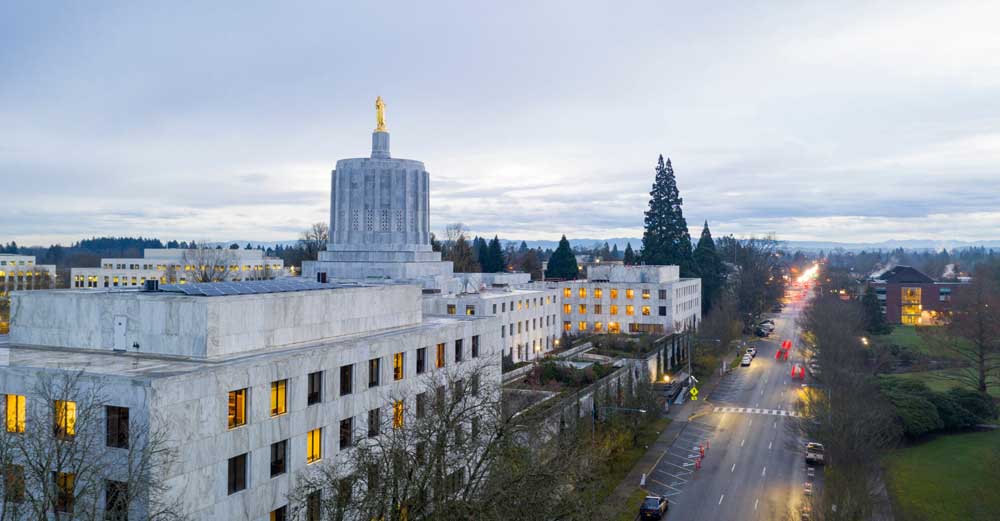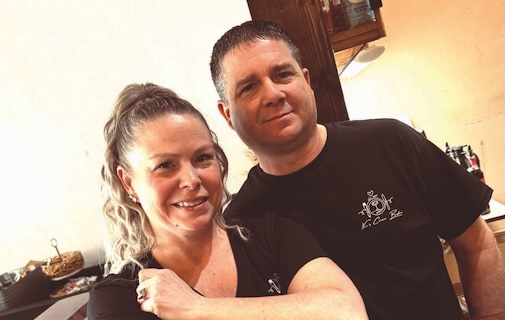A quiet cheer for solitude
Published 2:22 pm Wednesday, June 11, 2014
See Hillary run.
I dont mean for president, not officially. I mean around the country, from TV studio to town hall, New York to Chicago to Austin to Washington. Its been said that she needs to prove her fitness for a big campaign, and her tour for her book Hard Choices deliberately puts her in the thick of it, talking and listening and mingling and moving.
Id just as soon see her and other politicians retreat.
Take more time away. Spend more time alone. Trade the speechifying for solitude, which no longer gets anything close to the veneration its due, not just in politics but across many walks of life.
Its in solitude that much of the sharpest thinking is done and many of the best ideas are hatched. We know this intuitively and from experience, yet solitude is often cast as an archaic luxury and indulgent oddity, inferior to a spirited discussion and certainly to a leadership conference. All hail the leadership conference! The modern world has utterly fetishized it, as if enlightenment required a hotel ballroom, a platter of stale pastries and a gift tote.
Brainstorming is defined almost solely as a group activity, although some of the boldest strokes of lightning happen in isolation, where all the competing advice can be processed, where the meaningful strands come together and the debris falls away.
The calendar of a senior executive or public official is defined by meeting after meeting upon meeting. Theres no comparable premium on solitary pauses, on impregnable periods for contemplation, and a person who insists on them attracts a derogatory vocabulary: loner, loafer, recluse, aloof, eccentric, withdrawn.
We live in the new groupthink theres a shared belief that creativity and productivity must be a collaborative experience, and solitude has fallen out of fashion, Susan Cain, the author of the 2012 best seller Quiet, told me. But, she added, Theres so much research that flies in the face of this.
Cains book focuses on introverts, making the case that they have a kind of intellectual advantage. And their edge stems largely from greater amounts of solitude, from the degree to which theyve swapped motion for stillness, chatter for calm. Theyve carved out space for reflection thats sustained and deep.
This isnt necessarily a matter of being unplugged, of ditching the hyper-connectedness of our digital lives. Its a matter of ditching and silencing the crowd.
The metabolism of contemporary politics devalues solitude and makes it difficult. The system is nuts. We in the media keep scornful watch over elected leaders vacation schedules, giving them demerits for too many days on their own, though on their own is a crucial place to be.
And campaigns? Nuttier still. Our would-be presidents, governors and senators are expected to spend the prelude to Election Day hurtling across time zones, doing a slew of interviews and oodles of speeches from a practiced script of one-liners that they could recite in their sleep. Shaking hands trumps reading books, mulling problems, probing ones soul. Is it any wonder that our rulers as a class, and we as a country, are bereft of big ideas?
If a candidate has been out of office for a while, we consider that a handicap. Shouldnt it be a virtue? He or she has known some solitude and perhaps reaped its fruits.
Teddy Roosevelt reputedly read a book a day. That would now be deemed a wasteful distraction and curious disengagement. Paintings of Abraham Lincoln show him in hushed contemplation. Action is the preferred pose of our eras politicians, who want to be photographed on the go or leaning in, and who are evaluated in terms of their sociability, their zest for interaction.
Some push back. I recall a Fortune magazine interview years ago with Joel Klein, then the New York City schools chancellor, who said that he routinely sacrificed lunch for a ruminative walk. He also told Fortune that as Lloyd Bentsen stepped down from his post as Treasury secretary in the Clinton administration, he complained about the shortage of hours for pure thought, saying, Those are the meeting-est people I ever met.
There are stirrings of a renewed appreciation for solitude. Theyre detectable in the vogue for meditation, in the currency of mindfulness and in the work of a group of writers including not just Cain but also the sociologist Eric Klinenberg, whose book Going Solo examines the increased percentages of people living alone and finding solace in it.
My favorite snapshot of Hillary Clinton in Hard Choices is in the epilogue. She describes the cozy, sun-drenched third-floor study where she found solitude and a place to write after leaving the Obama administration. In a comfortable chair in that thickly carpeted room, she probably felt a whole new clarity. Thats what happens when you wall off the world. It should happen more often.
¦
Frank Bruni, an Op-Ed columnist for The New York Times since June 2011, joined the newspaper in 1995. Over his years at The Times he has worn a wide variety of hats, including chief restaurant critic and Rome bureau chief.





